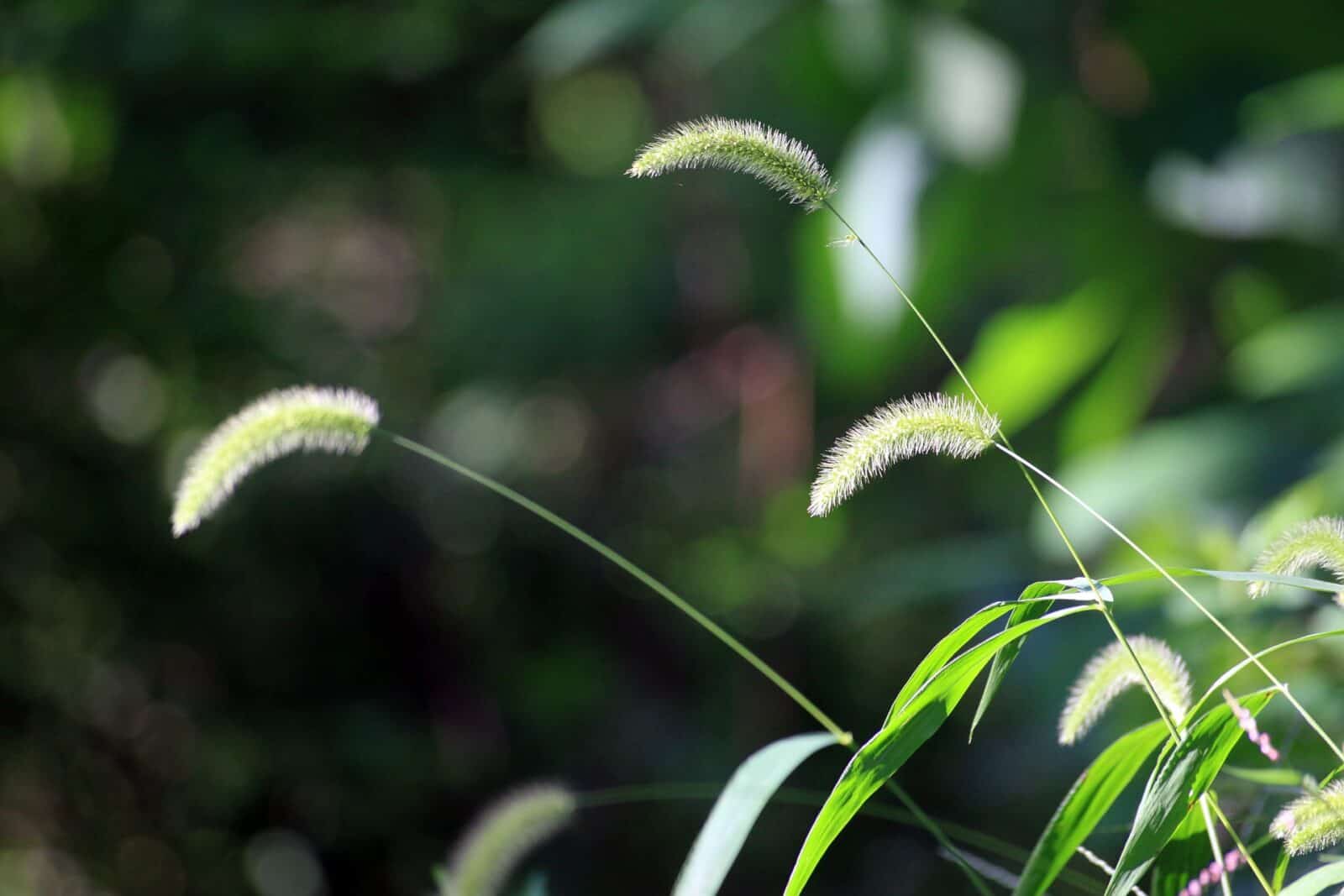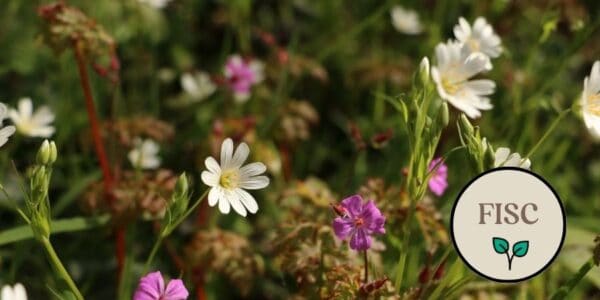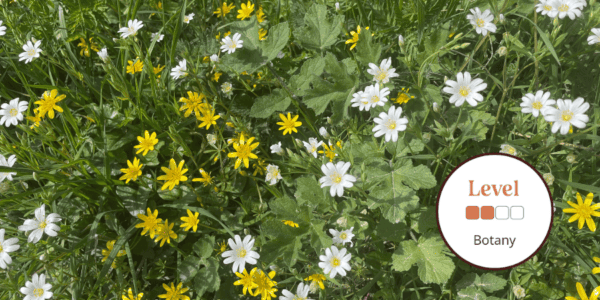Even without flowers, grasses are beautiful and easier to identify than you might think. On this beginner-intermediate course, you will learn how to identify grasses vegetatively (i.e. when not in flower) – a useful skill.
This skill can enable continued habitat surveying throughout the year or simply allow you to get your botanical fix during the winter months. This course will use classroom and field elements to equip you with the knowledge and skills to be able to independently identify grasses vegetatively.
This course will include:
- Knowledge and skills necessary to identify a range of vegetative grasses independently.
- All the anatomy and terminology that you need, in order to use a variety of keys to aid identification.
- A number of local field excursions to cement learning and explore new species.
- Although not the focus of the course, if you see sedges and rushes out in the field, these will be discussed.
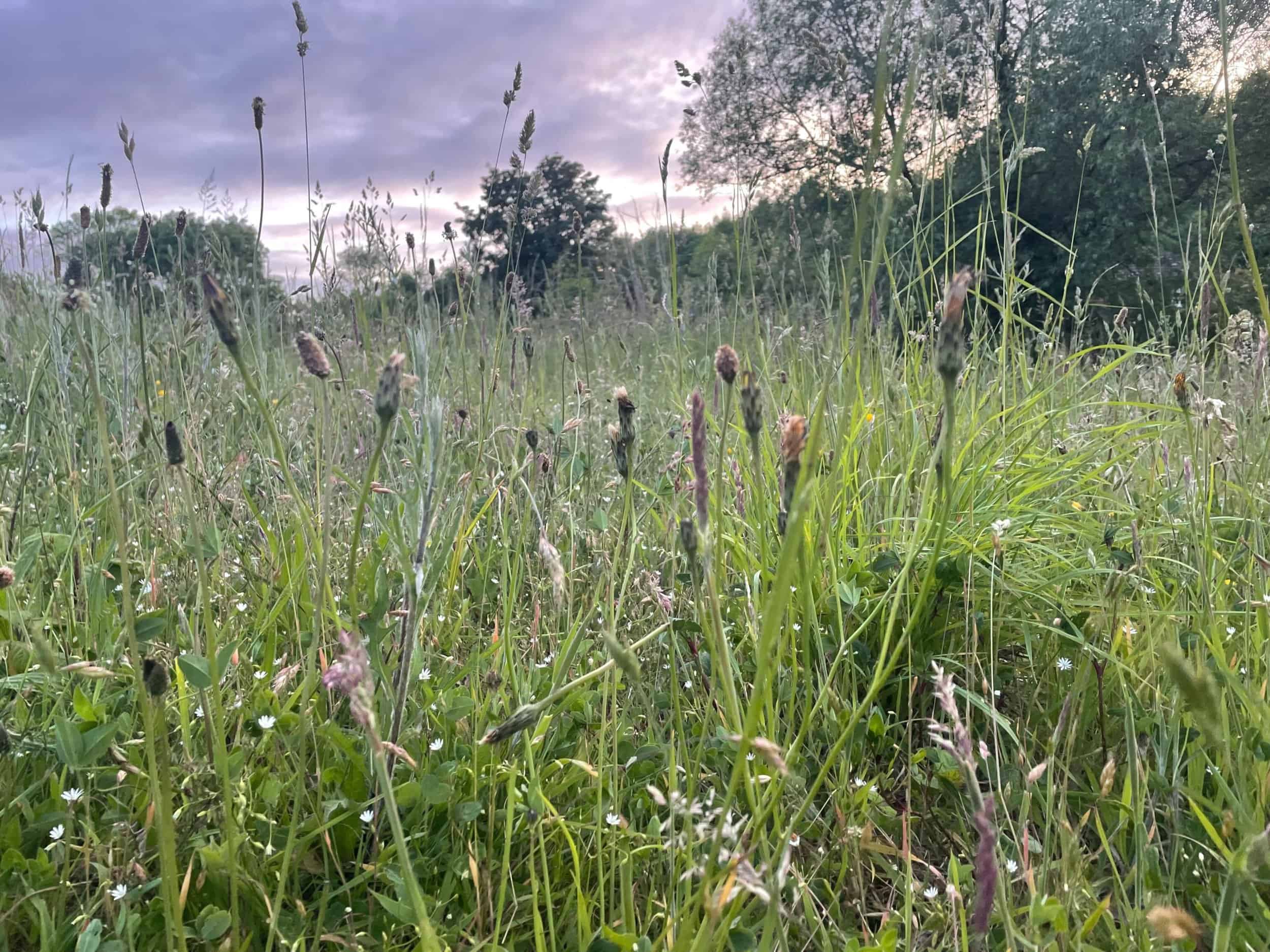
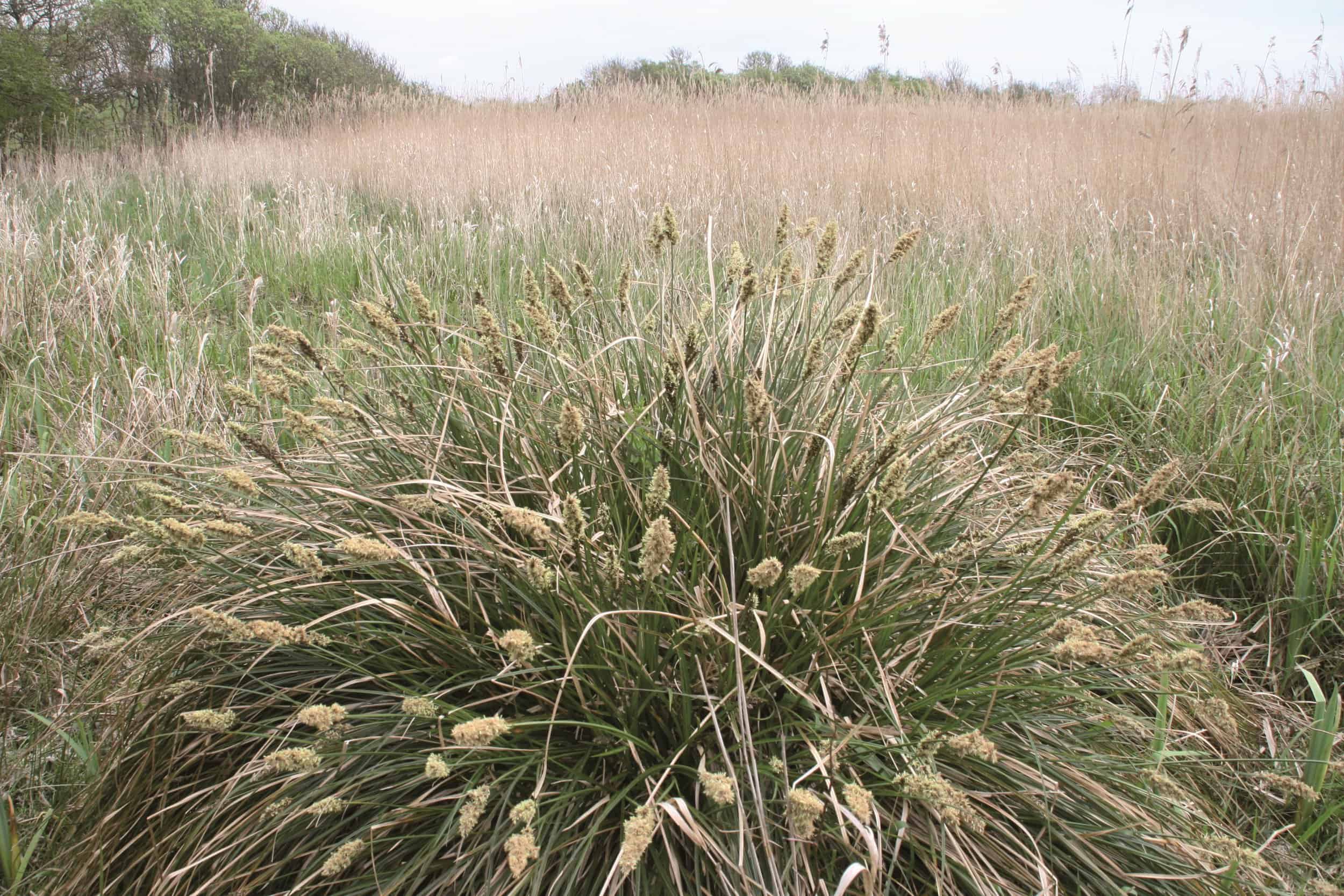
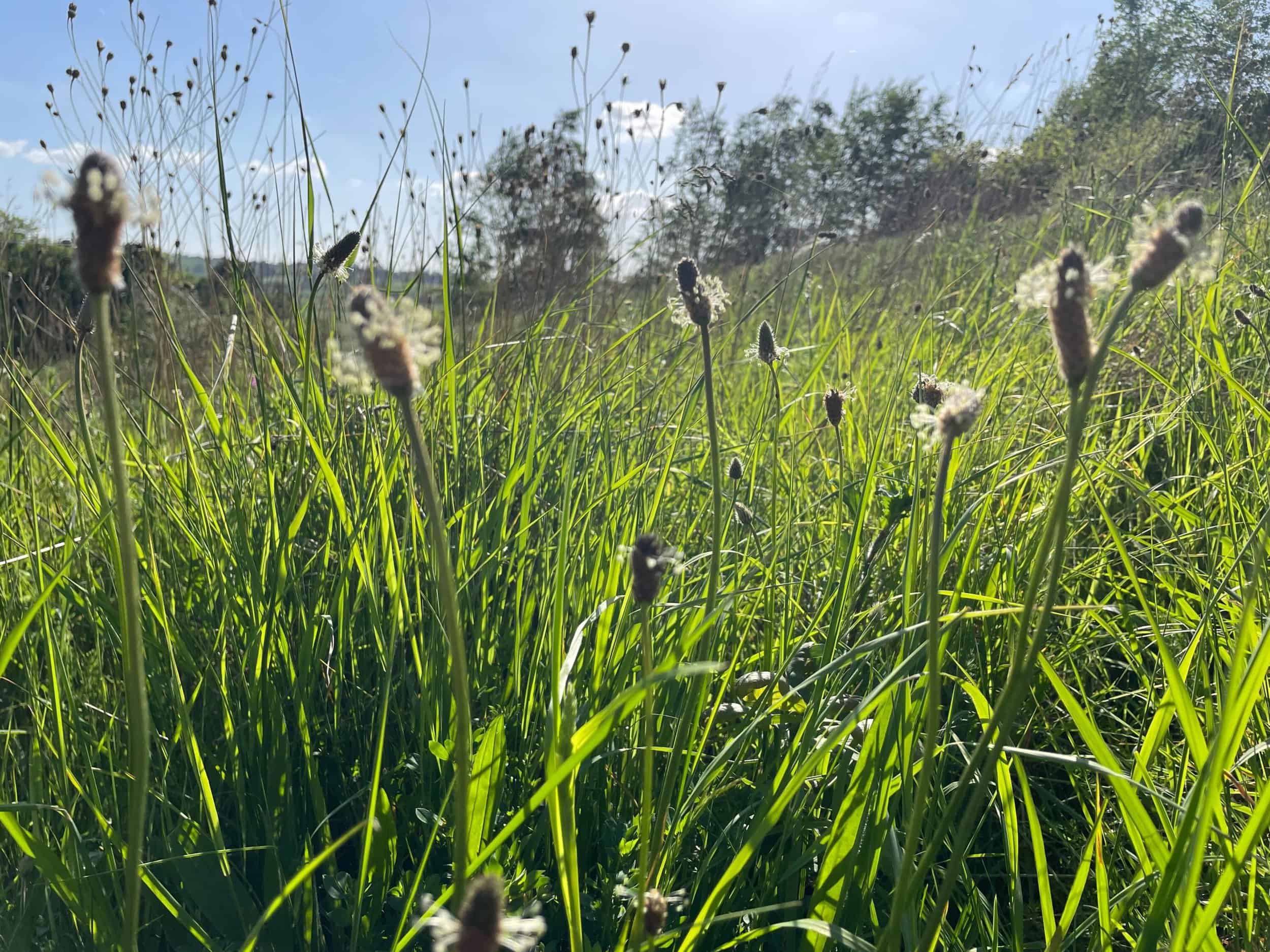
Read More
By the end of the course, you will be able to:
- Feel more confident about grass identification
- Be able to use of a variety of keys
These are skills that you can use all year round, whether flowers are present or not.
Who Should Attend? – Anyone is welcome on this course. Ecologists may find it particularly useful to aid with year-round habitat surveying.
Knowledge Level – Beginner-Intermediate. Level descriptors can be found on the following web-page: Framework and Course Level Descriptors
Prior Knowledge – No prior knowledge is required for this course, although it will be technical and require looking at small parts of specimens in detail.
PLEASE NOTE: There is no accommodation or meal facilities included in the course price. Refreshments (tea and coffee) will be available. If we are unable to reach viable numbers for this course, we will inform you of the course cancellation 4-5 weeks prior to the course run. We would recommend when purchasing accommodation and/or travel you should take out your own insurance.
Bookings will close if course capacity is reached.
Please email [email protected] if you have any questions.
About the Tutor
Laurie Wildwood
Laurie Wildwood is a professional ecological consultant and botany tutor who, with his refreshing approach, aims to inspire adults and children to explore and appreciate the natural world. His professional background is in ecology, conservation and habitat management.
Example Timetable
Example Timetable
This timetable is subject to change but should give a clear outline of what to expect.
- Please arrive in time for the course to start promptly at 10:00
- The course will end at 17:00
Day 1
Morning: you will spend the first morning in the classroom learning anatomy and terminology and getting to grips with a variety of keys using real specimens.
Afternoon: you will spend the afternoon continuing your learning in the field in the presence of your expert tutor.
Day 2
The second day will be predominantly used to cement learning and find new species in the local environment.
Please note accommodation and lunch are not included. Refreshments (tea and coffee) will be provided. Please bring your own lunch.
What's Included
The course has been carefully created by expert tutors and educators to help you build your knowledge and apply it within the field surrounded by like-minded individuals.
The course includes:
- Classroom learning covering the theory of the species
- Field excursions to apply new knowledge
- Expert tuition for which the Field Studies Council is renowned
- Clear objectives and progression
- Refreshments (tea and coffee)
You can rest assured that the absolute best content from an expert in environmental education will be provided. In choosing a Field Studies Council course, you will be joining thousands of people who learn with us each year.
Bursaries and Subsidies
Student Discount
This course is eligible for a student discount. If you are a current student, please use discount code BioStudent20 at checkout for 20% off all Biodiversity courses.
Natural History Bursaries
There are a number of natural history bursaries available to help with the cost of your course. To find out if you and your chosen course are eligible, read more here.
Before You Attend
What to Bring
- Notebook and pencil
- Lunch and refreshments
- Sensible footwear and clothing for being outdoors
- Small bag to carry personal items
The following items are mandatory for this course:
- Hand lens
- Tweezers
- Paper and Pencils
- Ruler and Rubber
- Weather-writer or clipboard and bag/cover
Recommended Literature
When you book this course, you will receive a discount code for the Field Studies Council guides. The tutor will be referring to, and printing out excerpts from, these books:
- Grasses by C.E.Hubbard
- Grasses, sedges and rushes by Francis Rose
- The Vegetative Key by John Poland.
- Grasses AIDGAP
There will be a member of staff with first aid training and access to a first aid kit on site. If you have special medical or access requirements, please let us know as soon as possible so we can plan the course.
Opportunities to attend this course
-
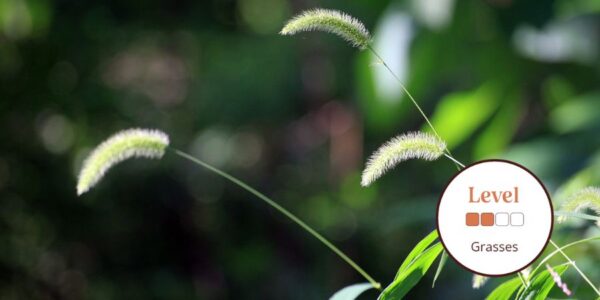
Sat 12, October 2024 10:00 - Sun 13, October 2024 17:00
Directions to Buckden Village Institute can be found here. Further information can also be found here. The venue is unable to offer accommodation with this course, please book local accommodation if you require overnight stays and ensure you take out the appropriate insurance.
-

Sat 26, October 2024 10:00 - Sun 27, October 2024 17:00
Directions and further information about Oakwell Hall can be found here. The venue is unable to offer accommodation with this course, please book local accommodation if you require overnight stays and ensure you take out the appropriate insurance.
No current dates for this course? Click here to view all the upcoming Natural History courses.
Progress Your Learning
This is a training course from the Field Studies Council, delivered by expert tutors with an approachable learning style. After attending this course, you may like to progress your learning with further relevant courses or branch out into other areas of natural history. The Field Studies Council offers both online and in-person courses, so you can choose the learning style that suits you best.
The course gives you the opportunity to immerse yourself in a new subject and acquire novel skills. Our online portal gives you time to study at your own pace and fit the lessons around your own schedule.
If you have any questions about our courses please check our Frequently Asked Questions or email [email protected].
Group Bookings Made Easy
If you have a group of 10 or more individuals wanting to complete one of our courses, our team are available to discuss your options – from discounts to private team courses. Find out more!
You can rest assured that the absolute best content from an expert in environmental education will be at your fingertips. In choosing a Field Studies Council course, you will be joining thousands of people who learn with us each year.

